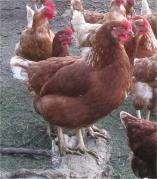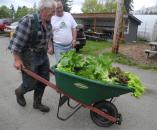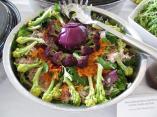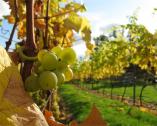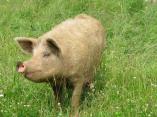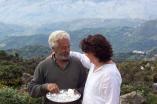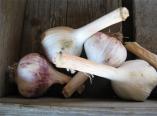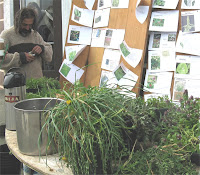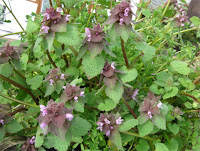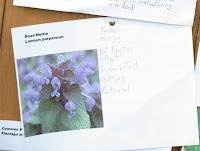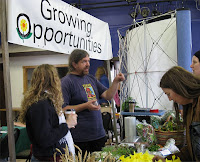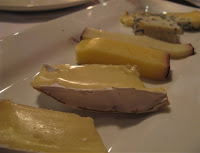And now, a message from CBAN, which is campaigning for Bill C-474 (Seeds Regulation Act), which aims to protects Canadian farmers who grow crops for our export (and organic) markets, by requiring Canada to perform proper analysis of potential harm before it allows any more GE crops into our fields.
This analysis is not being done at the moment: you may recall that flax contamination badly harmed our exports last year. The matter is urgent because Monsanto aims to introduce GE wheat and alfalfa into our markets, which would cause immeasurable and permanent damage to the purity of our wheat and alfalfa crops, and our ability to export to markets like Europe, which has banned GE products for human consumption. Italy, for example, relies upon Canadian wheat for its pasta industry.
You can listen to the First Reading debate on Deconstructing Dinner’s March 25 episode.
Here’s what CBAN has to say:
Action Alert. Please distribute widely.
Action Alert #3: Take New Action before April 14, 2010!
Support Bill C-474 – before April 14, 2010 – Support Canada’s Farmers! You can stop GE Alfalfa and GE Wheat!
Write an instant letter to Michael Ignatieff, Liberal Party leader from http://cban.ca/liberalact474 and ask him to make sure the Liberals pass the Bill on April 14.
You can also write to your own MP at http://cban.ca/474action
Bill C-474 was voted down but not out on April 1. The Liberals support the Bill in words – but will they support with enough votes on April 14?
Private Members Bill C-474 was debated on March 17, and April 1 with an oral vote. The recorded, official vote will happen on April 14.
Your concrete action could stop genetically engineered (GE) seeds from causing chaos in Canadian farming!
Bill C-474 would require that “an analysis of potential harm to export markets be conducted before the sale of any new genetically engineered seed is permitted.” The Bill could stop GE alfalfa and GE wheat.
This Bill is critically important because, as we know from experience, the introduction of new genetically engineered (GE) crops can cause economic hardship to farmers. Farmers are at risk when GE crops are commercialized in Canada without also being approved in our major export markets.
Flax farmers in Canada are now paying a heavy price because of this exact problem. Late last year, Canadian flax exports were discovered contaminated with a GE flax that is not approved in Europe or in any of our other export markets (except the U.S.). Flax farmers actually foresaw that GE contamination or even the threat of contamination would close their export markets. That’s why they took steps in 2001 to remove GE flax from the market. Despite this measure, flax farmers were not protected. The GE flax contamination closed our export markets in 2009. It has created market uncertainty and depressed prices. Farmers are also paying for testing and cleanup and may be required to abandon their own farm-saved flax seed and buy certified seed instead. These costs are an unnecessary and preventable burden.
We cannot allow GE seeds to harm our export markets. Please support Bill C-474 and protect Canada’s farmers.
Write an instant letter to Michael Ignatieff, Liberal Party leader before April 14 http://cban.ca/liberalact474
Bill C-474 was introduced by Alex Atamanenko, the NDP Agriculture Critic and MP for British Columbia Southern Interior.
For updates, more info and action options, see http://cban.ca/474 or contact Lucy Sharratt, Coordinator, Canadian Biotechnology Action Network 613 241 2267 ext. 6
This action alert was issued by the Canadian Biotechnology Action Network (CBAN) http://cban.ca
